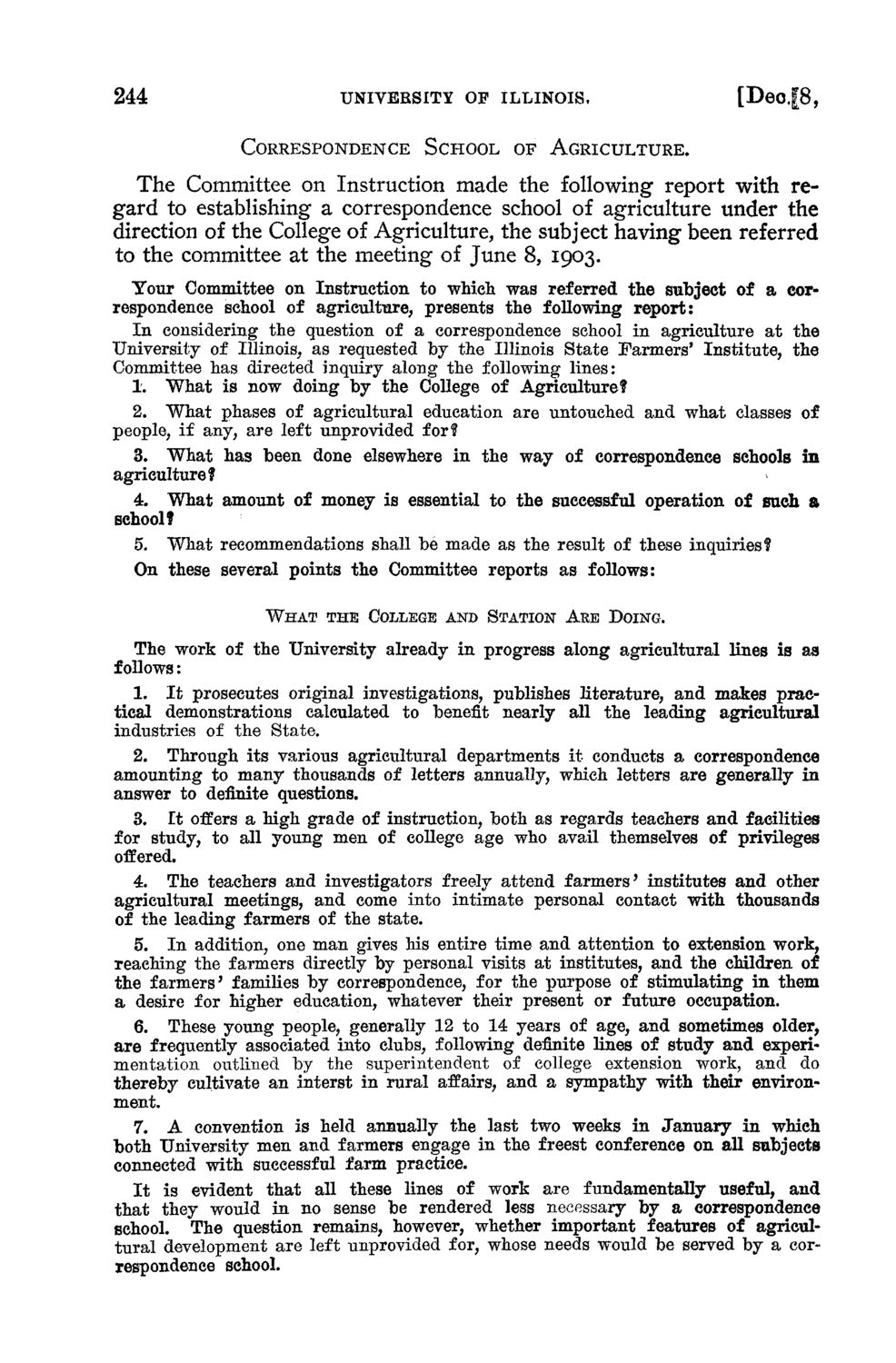| |
| |
Caption: Board of Trustees Minutes - 1904
This is a reduced-resolution page image for fast online browsing.

EXTRACTED TEXT FROM PAGE:
244 UNIVERSITY OF ILLINOIS. CORRESPONDENCE SCHOOL OF AGRICULTURE. [Deo|8, The Committee on Instruction made the following report with regard to establishing a correspondence school of agriculture under the direction of the College of Agriculture, the subject having been referred to the committee at the meeting of June 8, 1903. Your Committee on Instruction to which was referred the subject of a correspondence school of agriculture, presents the following report: I n considering the question of a correspondence school in agriculture a t the University of Illinois, as requested by the Illinois State Farmers' Institute, the Committee has directed inquiry along the following lines: 1. What is now doing by the College of Agriculture? 2. What phases of agricultural education are untouched and what classes of people, if any, are left unprovided for? 3. What has been done elsewhere in the way of correspondence schools in agriculture? 4. What amount of money is essential to the successful operation of such a school? 5. What recommendations shall be made as the result of these inquiries? On these several points the Committee reports as follows: W H A T THE COLLEGE AND STATION A R E DOING. The work of the University already in progress along agricultural lines is as follows: 1. I t prosecutes original investigations, publishes literature, and makes practical demonstrations calculated to benefit nearly all the leading agricultural industries of the State. 2. Through its various agricultural departments i t conducts a correspondence amounting to many thousands of letters annually, which letters are generally in answer to definite questions. 3. It offers a high grade of instruction, both as regards teachers and facilities for study, to all young men of college age who avail themselves of privileges offered. 4. The teachers and investigators freely attend f a r m e r s ' institutes and other agricultural meetings, and come into intimate personal contact with thousands of the leading farmers of the state. 5. I n addition, one man gives his entire time and attention to extension work, reaching the farmers directly by personal visits at institutes, and the children of the farmers' families by correspondence, for the purpose of stimulating in them a desire for higher education, whatever their present or future occupation. 6. These young people, generally 12 to 14 years of age, and sometimes older, are frequently associated into clubs, following definite lines of study and experimentation outlined by the superintendent of college extension work, and do thereby cultivate an interst in rural affairs, and a sympathy with their environment. 7. A convention is held annually the last two weeks in J a n u a r y in which both University men and farmers engage in the freest conference on all subjects connected with successful farm practice. I t is evident that all these lines of work are fundamentally useful, and that they would in no sense be rendered less necessary by a correspondence school. The question remains, however, whether important features of agricultural development are left unprovided for, whose needs would be served by a correspondence school.
| |